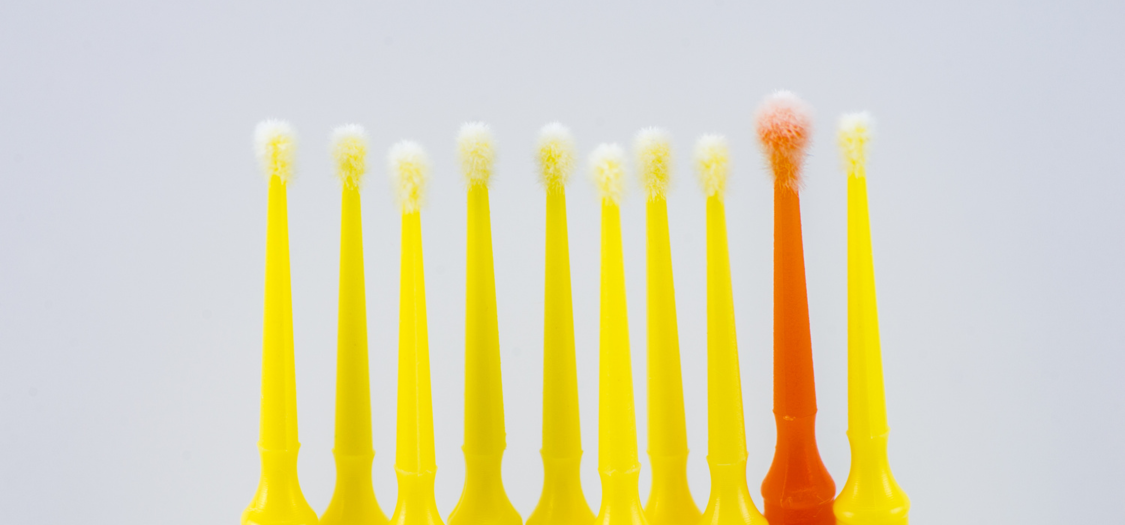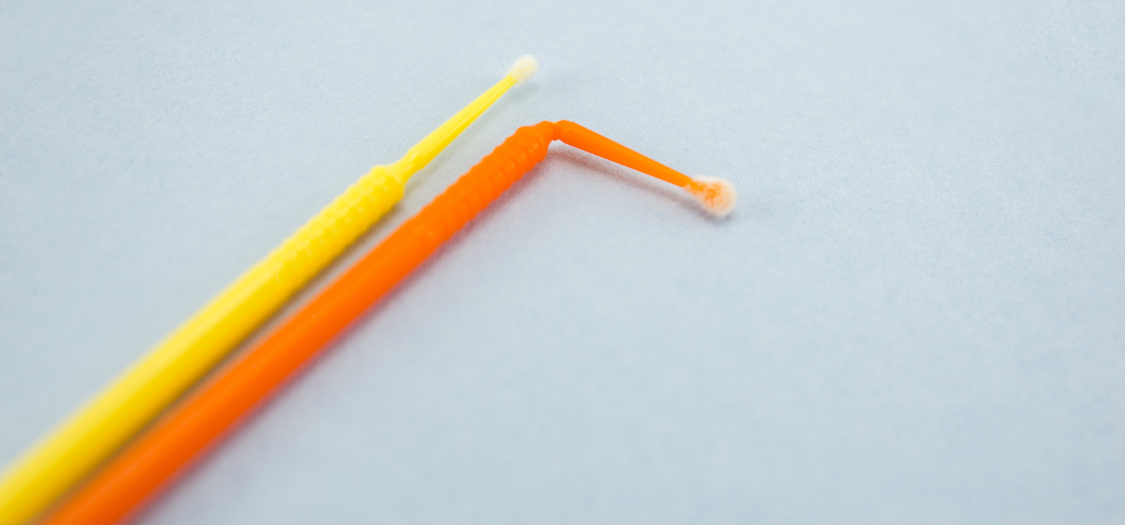
In the world of dental hygiene, there’s an array of tools and accessories designed to ensure optimal oral health. Among these, dental applicator brushes stand out as versatile instruments with various applications in both professional dental care settings and personal oral hygiene routines. From applying medication to precise cleaning, these tiny applicator brushes offer a wide range of benefits. We’ll delve into everything you need to know about dental applicator brushes, from their types and uses to tips for effective application.
What Are Dental Applicator Brushes?
Dental applicator brushes, also known as micro brushes, are small disposable tools used primarily in dentistry for applying medication, bonding agents, sealants, and other substances precisely. They consist of a small, flexible handle and a soft, non-linting, and highly absorbent tip made of materials like cotton, nylon, or microfiber. The tips come in various sizes and shapes, allowing for precise application in different areas of the mouth.
Types of Dental Applicator Brushes
- Standard Micro Brushes: These are the most common type of dental applicator brushes, featuring a small, tapered tip suitable for precise application of materials such as sealants, adhesives, and medicaments.
- Fine Tip Applicator Brushes: These brushes have an even finer tip than standard micro brushes, making them ideal for ultra-precise applications, especially in areas with limited access or delicate surfaces.
- Bendable Applicator Brushes: As the name suggests, these brushes come with a flexible handle that can be bent or angled for better reach and access to difficult-to-reach areas, such as the posterior teeth.
- Disposable Micro Applicators: These brushes are designed for single-use applications, ensuring hygiene and preventing cross-contamination in dental procedures.
Uses Of Dental Applicator Brushes

Dental applicator brushes, also known as micro applicator brushes, serve various essential functions in both professional dental settings and personal oral hygiene routines. Here are some of their primary uses:
- Applying Topical Medications: Dental applicator brushes are commonly used to apply topical medications to specific areas of the oral cavity. This includes applying fluoride varnish to prevent tooth decay, desensitising agents to alleviate tooth sensitivity, and medicated gels or ointments to treat oral lesions or ulcers.
- Precision Bonding: In restorative dentistry procedures, such as composite fillings, dental bonding, or veneer placement, precise application of bonding agents is crucial for ensuring optimal adhesion and longevity of restorations. Dental applicator brushes enable dentists to apply bonding agents accurately to the prepared tooth surfaces, enhancing the success of the bonding process.
- Sealant Application: Dental sealants are thin coatings applied to the chewing surfaces of molars and premolars to prevent the development of cavities. Applicator brushes with fine tips are ideal for precisely applying sealant materials into the pits and fissures of the teeth, creating a protective barrier against bacteria and food debris.
- Etching and Cleaning: Before applying bonding agents or sealants, it’s essential to properly prepare the tooth surface by cleaning and etching. Dental applicator brushes facilitate this process by allowing dentists to apply etchant solutions to the enamel surface, creating micro-retentive patterns that enhance the bond strength of dental materials.
- Cosmetic Procedures: In cosmetic dentistry, such as teeth whitening treatments or the placement of tooth-coloured restorations like composite fillings or porcelain veneers, precise application of materials is critical for achieving aesthetically pleasing results. Dental applicator brushes enable dentists to apply whitening gels or composite materials with precision, ensuring uniform coverage and natural-looking outcomes.
- Removal of Excess Material: After applying dental materials, such as bonding agents, sealants, or composite resins, excess material may need to be removed to achieve optimal contours and aesthetics. Dental applicator brushes can be used to gently remove excess material from the tooth surface or surrounding tissues without causing damage.
- Application of Hemostatic Agents: In dental procedures where bleeding control is necessary, such as tooth extractions or periodontal surgeries, hemostatic agents may be applied to promote clot formation and minimise bleeding. Dental applicator brushes facilitate the precise application of hemostatic agents to the bleeding site, helping to achieve hemostasis and maintain a clear operative field.
- Cleaning and Lubricating Dental Instruments: Dental applicator brushes are also useful for cleaning and lubricating dental instruments, such as handpieces, scaler tips, and orthodontic appliances. By applying lubricating solutions or cleaning agents with micro brushes, dental professionals can ensure the proper functioning and longevity of their instruments.
Tips for Effective Application
Choose the Right Size: Select an applicator brush with a tip size appropriate for the specific task and the area of the mouth you’re working on. Fine tips are ideal for detailed work, while larger tips may be suitable for broader applications.
Maintain Hygiene: Use disposable micro brushes for single-use applications to prevent cross-contamination and ensure optimal hygiene standards in dental procedures.
Practice Precision: Take your time to apply materials precisely, especially when working in delicate areas or performing intricate procedures. Proper application contributes to the effectiveness and longevity of dental treatments.
Dispose of Properly: After use, dispose of the applicator brushes properly according to medical waste disposal guidelines to prevent environmental contamination and ensure safety.
Store Correctly: Store unused brushes in a clean, dry environment away from moisture and direct sunlight to maintain their integrity and prevent contamination.
Conclusion
Dental applicator brushes are indispensable tools in modern dentistry, offering precise application of medications, bonding agents, sealants, and other substances essential for maintaining oral health and performing dental procedures. With their versatility, disposable nature, and ability to access hard-to-reach areas, these tiny brushes play a significant role in ensuring successful dental treatments and improving patient outcomes.
Whether you’re a dental professional or an individual focused on maintaining optimal oral hygiene, understanding the types, uses, and best practices for using dental applicator brushes is key to achieving excellent dental care results.
Follow us on Instagram




